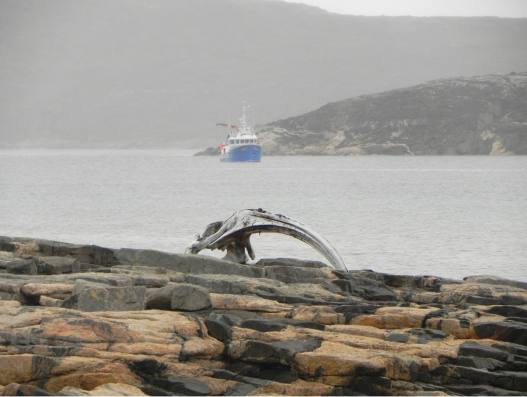Fishery Adaptations to Range Extensions and Contractions of Freshwater, Anadromous/Marine Fishes, and Marine Mammals Due To Climate Change: Conflicts Between Temperate Invaders, Arctic Species, and Northern Communities
Description

Understanding and predicting how climate change will affect the habitat ranges of freshwater and marine species is critical for effective management of fisheries, especially for the traditional aboriginal fisheries used by Northern communities. The identification of potential changes in the ranges of individual species, and an assessment of the impacts that these changes will have on other species and aquatic communities, will help this project examine the ways in which range expansions and contractions associated with a changing climate will impact freshwater and marine ecosystems in the Arctic.
Results: Discussions with client groups and scientists are currently underway to gather information about anticipated changes in habitat ranges for individual species. These changes include the northward expansion of temperate species and range contractions in Arctic species. Researchers are also seeking insight into the mechanisms that drive these habitat range changes, the consequences on interactions between species, and the effects these changes will have on fisheries and Northern communities.
Along with ongoing data collection, an aquarium that was designed to maintain different water quality environments for observing the habitat choices of individual fish is being adapted for use with larger fish species, such as mature Arctic Char. Development of this experimental aquarium is still underway, and has shown good promise of success.
Program Name
Aquatic Climate Change Adaptation Services Program (ACCASP)
Ecoregion(s)
Central Canada: Lake Winnipeg, Nelson River Drainage Basin
Principal Investigator(s)
Kevin J. Hedges
Fisheries and Oceans Canada
- Date modified: